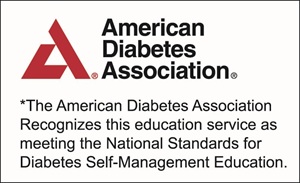Whether you’re trying to get diabetes under control or working to prevent it, Northwestern Medicine provides the comprehensive education and support you need. All members of the Northwestern Medicine diabetes education team are certified diabetes educators who are registered nurses or registered dietitians. Diabetes educators work closely with your physician to support your care.
You’ll also have:
- Easy access to registered nurses and dietitians to help you with lifestyle changes, meal planning and use of blood sugar meters and insulin pumps
- Individual assessments, group classes and self-management training
- Nutrition counseling
- Connections to endocrinologists with advanced training in diabetes care
Types of diabetes
When you have diabetes, your body has a problem turning sugar (glucose) from food into energy. A hormone called insulin helps your cells absorb glucose. In diabetes, your body either doesn’t make enough insulin or can’t use insulin as it should. Diabetes can take several forms:
- Type 1 diabetes: When your body loses the ability to make insulin; this type of diabetes usually begins during childhood or adolescence
- Type 2 diabetes: When your body develops a resistance to the action of insulin and can’t make enough insulin to overcome this resistance
- Pre-diabetes: When your blood glucose levels are higher than normal but not yet high enough to be diagnosed as diabetes
- Gestational diabetes: Diabetes that begins during pregnancy
- Pediatric diabetes: Type 1 or type 2 diabetes affecting children
 Prevention is possible
Prevention is possible
Knowledge is the key to prevention. By getting the facts, understanding your risks and making healthy lifestyle changes, you can help prevent type 2 diabetes. Even small steps can make a big difference to your health. Estimate your personal risk for developing diabetes, with our Diabetes Risk Profiler. Learn about risks for diabetes from the American Diabetes Association. Based on your risk, consider the CDC's diabetes prevention program offered locally.
Learn more about managing diabetes and diabetes education.



 Prevention is possible
Prevention is possible





